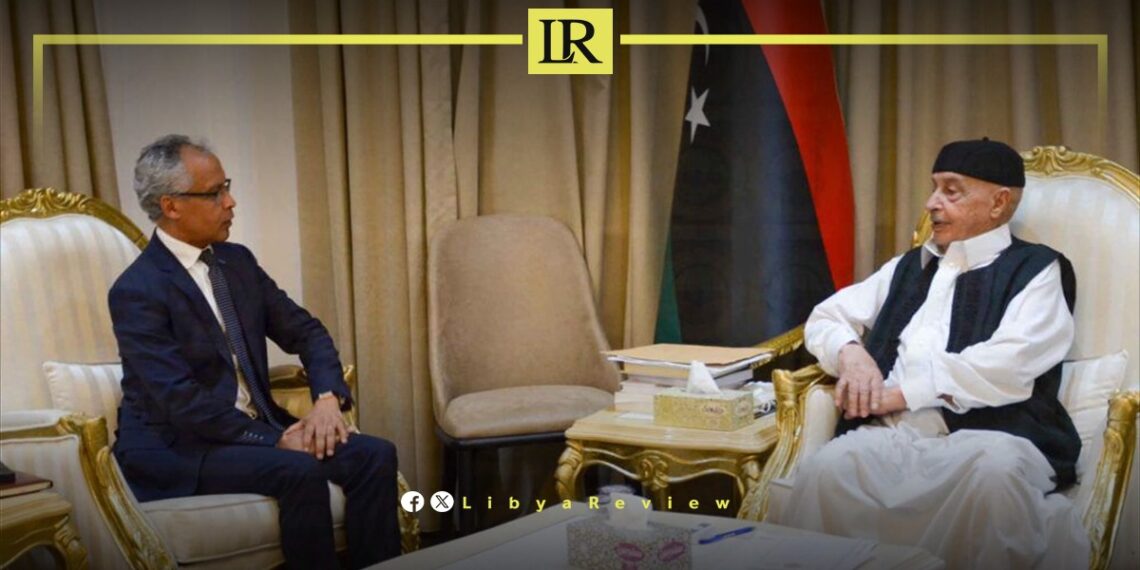Libyan House of Representatives Speaker Ageela Saleh has received an official invitation from French Ambassador to Libya, Mostafa Mihraje, to visit Paris.
The invitation was extended during a meeting held in the city of Al Qubbah on Thursday, according to a statement from the media office of the House of Representatives.
During the meeting, Ambassador Mihraje handed over the invitation, aiming to discuss bilateral relations and the latest developments in Libya. The discussions focused on key issues, including the political process and recent developments across various sectors.
In a related diplomatic move, the General Commander of the Libyan National Army (LNA), Field Marshal Khalifa Haftar, also met with Ambassador Mihraje to discuss the current political process in Libya. This meeting took place at Haftar’s office in the LNA headquarters in Benghazi. The LNA’s media office reported that Haftar praised the robust relations between Libya and France, highlighting the importance of further strengthening these ties and exploring new avenues for cooperation.
Ambassador Mihraje reiterated France’s commitment to enhancing bilateral relations to serve mutual interests. Both Haftar and Mihraje emphasized the need to advance the political process in Libya, aiming to pave the way for elections with the coordination of the United Nations Support Mission in Libya (UNSMIL).
Concurrently, a delegation of French companies is visiting Benghazi with Ambassador Mihraje. These companies are competing alongside Emirati and Turkish firms for contracts in the reconstruction and healthcare sectors in eastern Libya.
Since the fall of Muammar Gaddafi in 2011, Libya has experienced political turmoil and conflict. The country remains divided between rival administrations and armed factions. Efforts to unify the country and establish a stable political framework have been ongoing, supported by international actors like the United Nations.
The formation of a new government is seen as essential for addressing the country’s many issues, including security, economic instability, and the provision of basic services. The international community has also been urging Libyan leaders to reach an agreement and set a clear timeline for elections.
The High Council of State and the House of Representatives have been engaged in a dialogue to resolve their differences and agree on the necessary steps to hold elections. The Misrata meeting is expected to address key issues, including the legal framework for elections and the composition of the new government.


